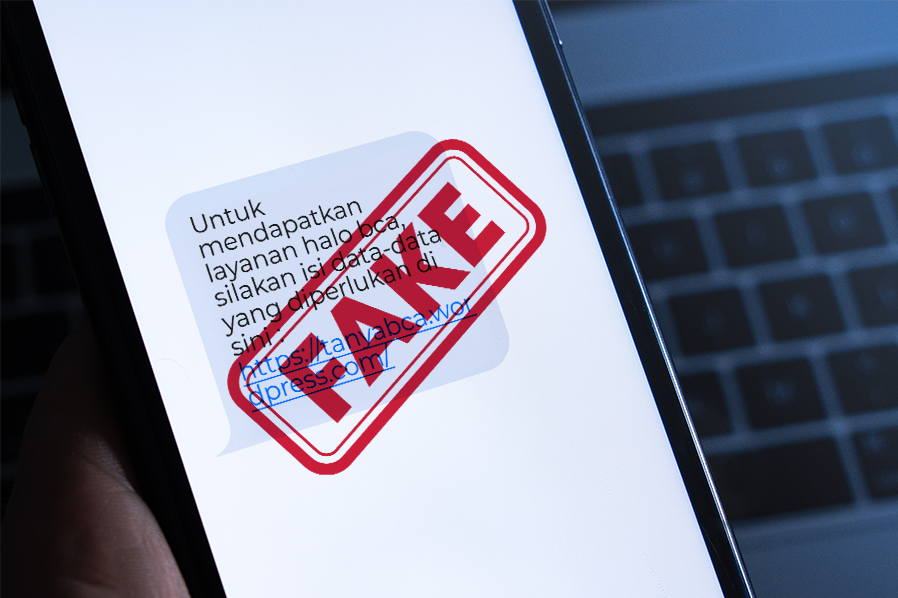Even though information exchange technology now has many platforms and media, short messages (SMS) are still one of the media for fraudsters to trap their victims. Actually, the technique used is almost the same as phishing, but the medium is different.
Smishing is a scam method to steal private information through SMS. The fraudster usually sends a message containing a link or an attachment that lures the victim to share their personal banking data. If you are asked for your ATM card number, PIN, OTP code, and other personal data, delete the message immediately because this is a mode of fraud. BCA itself has never asked for personal banking data of its customers through any means.
Characteristics of Smishingto Watch Out For
Smishing text messages are usually sent by fraudsters in various forms. The goal, however, is always the same, namely to retrieve and steal personal information from their victims.
Fraudster will send a message under false identity. They normally pretend to be a bank officer, a foundation or government staff, an agency or financial institution representative, or an old friend.
The content of smishing text messages will usually include a link. If clicked, this link will redirect the recipient to a suspicious page that resembles a legitimate site.
If traced further, the page will contain a form that asks you to enter various data. They are usually confidential data such as ATM card number, PIN, OTP code, etc. The fraudster can access and drain your money in your account if you fill out this form.
If the link in the smishing texts automatically downloads an application or file, that usually contains a virus or software specifically designed to steal private data stored on your phone or gadget. In that case, your data and privacy is compromised in a second because of your negligence.
Read Also: Waspada Jual-beli Data Pribadi! Ini Tips Jaga Keamanan Datamu
How to Avoid Smishing
A few things you need to remember to avoid when receiving smishing text.
1. Never Respond to Unsolicited Texts
There are times when we find it difficult to distinguish between real SMS texts and smishing text. The first step is to check the contact or sender first, if you feel unfamiliar and unclear, ignore it.
2. Never Access Linksfrom Suspicious Texts
Smishing text will usually contain false information such as winning a door prize, attractive program offers, pretending as an old friend, promising cash prizes or free products. Usually, the attacker offers a lure and asks for the victim to open the link sent to them. Be careful, because it is a fraudster trick to fool you.
3. Never Share Private Banking Information
The end goal of a fraudster is to ask for confidential banking information such as ATM card number, PIN, OTP code, CVV/CVC code, and many more. If you indicate someone is requesting these data, it is a trick to gain access to your BCA account. Do not share personal data to anyone through any means, especially through suspicious links.
Any type of online fraud are usually a danger to financial data, which is misused to access your bank account.
If in doubt, immediately contact BCA’s official customer service or social media to confirm the information you received or request assistance related to financial accounts. Here are some of BCA’s official contacts:
- Call Center — 1500888 (without the prefix 021, +62, etc.)
- WhatsApp — 08111500998 (with blue badge)
- Instagram — @GoodLifeBCA (with blue badge)
Let’s spread this information so that we can eradicate fraud. For more information on the latest banking scams, go to www.bca.co.id/awasmodus to keep you safe and avoid fraud.



